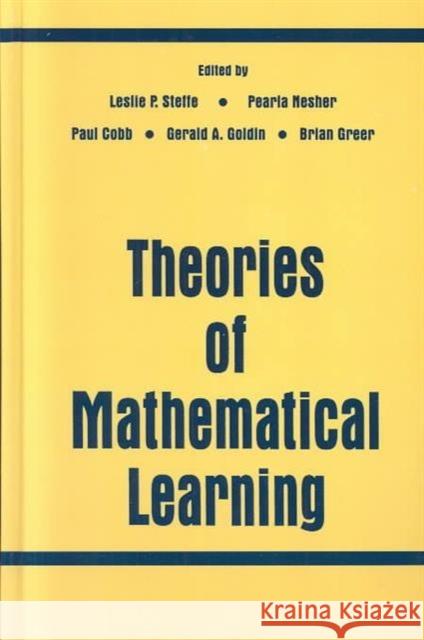Theories of Mathematical Learning » książka
Theories of Mathematical Learning
ISBN-13: 9780805816617 / Angielski / Twarda / 1996 / 538 str.
Theories of Mathematical Learning
ISBN-13: 9780805816617 / Angielski / Twarda / 1996 / 538 str.
(netto: 720,05 VAT: 5%)
Najniższa cena z 30 dni: 654,86
ok. 16-18 dni roboczych.
Darmowa dostawa!
Bringing together multiple perspectives on mathematical thinking, this volume presents elaborations on principles that reflects the progress made in the last 20 years. It is a starting point for understanding mathematical learning and should be of interest to educational researchers.
Chemists, working with only mortars and pestles, could not get very far unless they had mathematical models to explain what was happening "inside" of their elements of experience -- an example of what could be termed mathematical learning.
This volume contains the proceedings of Work Group 4: Theories of Mathematics, a subgroup of the Seventh International Congress on Mathematical Education held at Université Laval in Québec. Bringing together multiple perspectives on mathematical thinking, this volume presents elaborations on principles reflecting the progress made in the field over the past 20 years and represents starting points for understanding mathematical learning today. This volume will be of importance to educational researchers, math educators, graduate students of mathematical learning, and anyone interested in the enterprise of improving mathematical learning worldwide.











